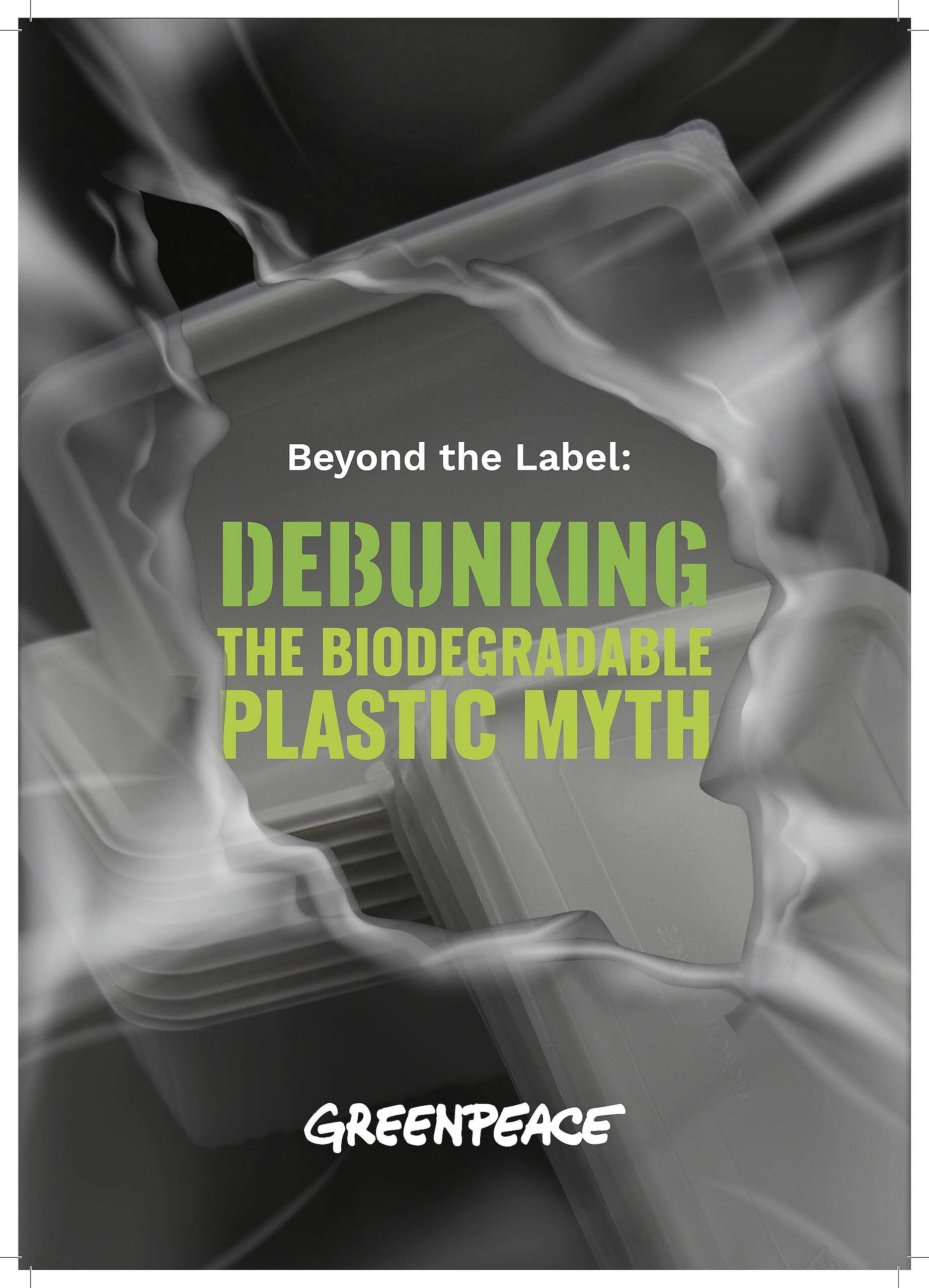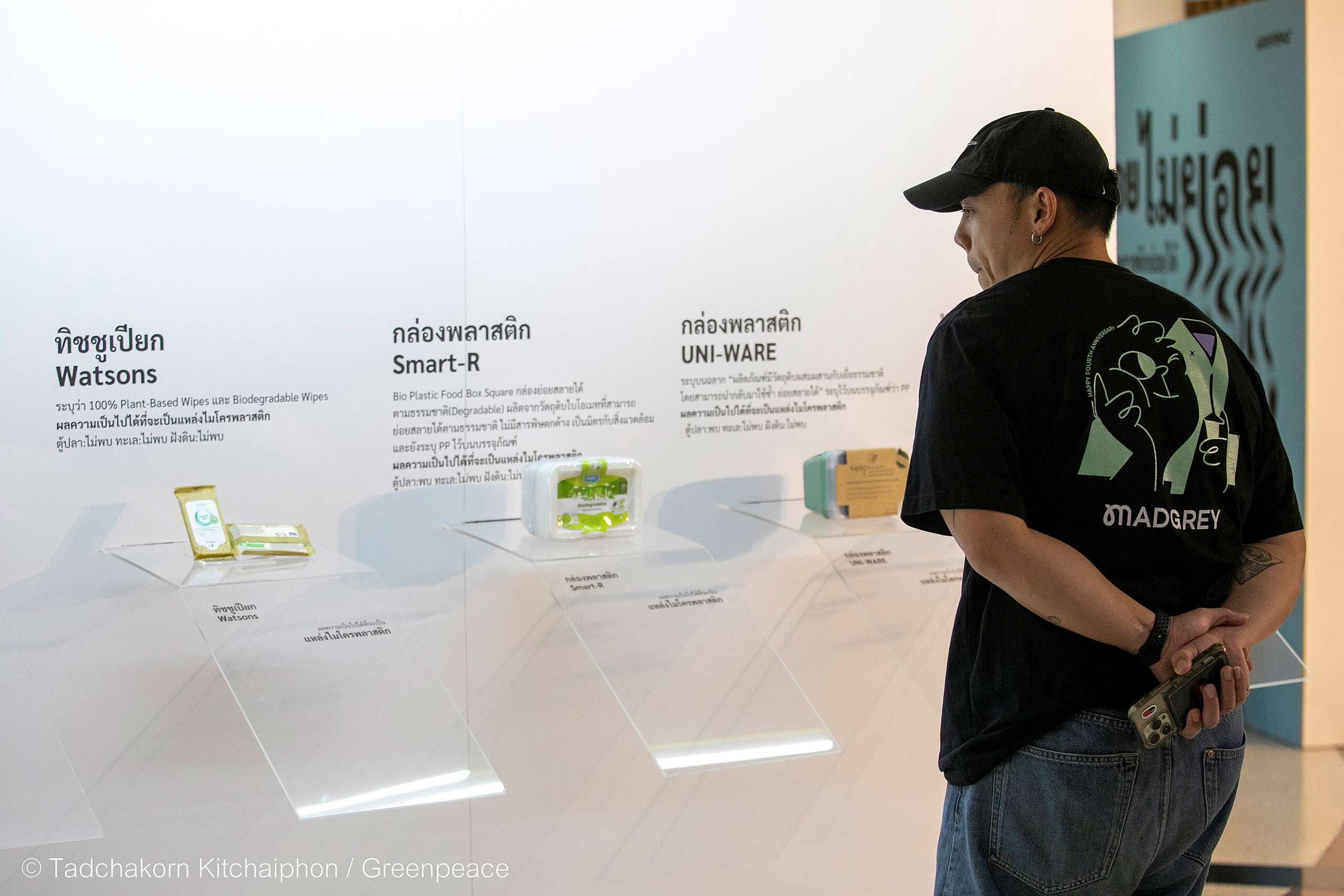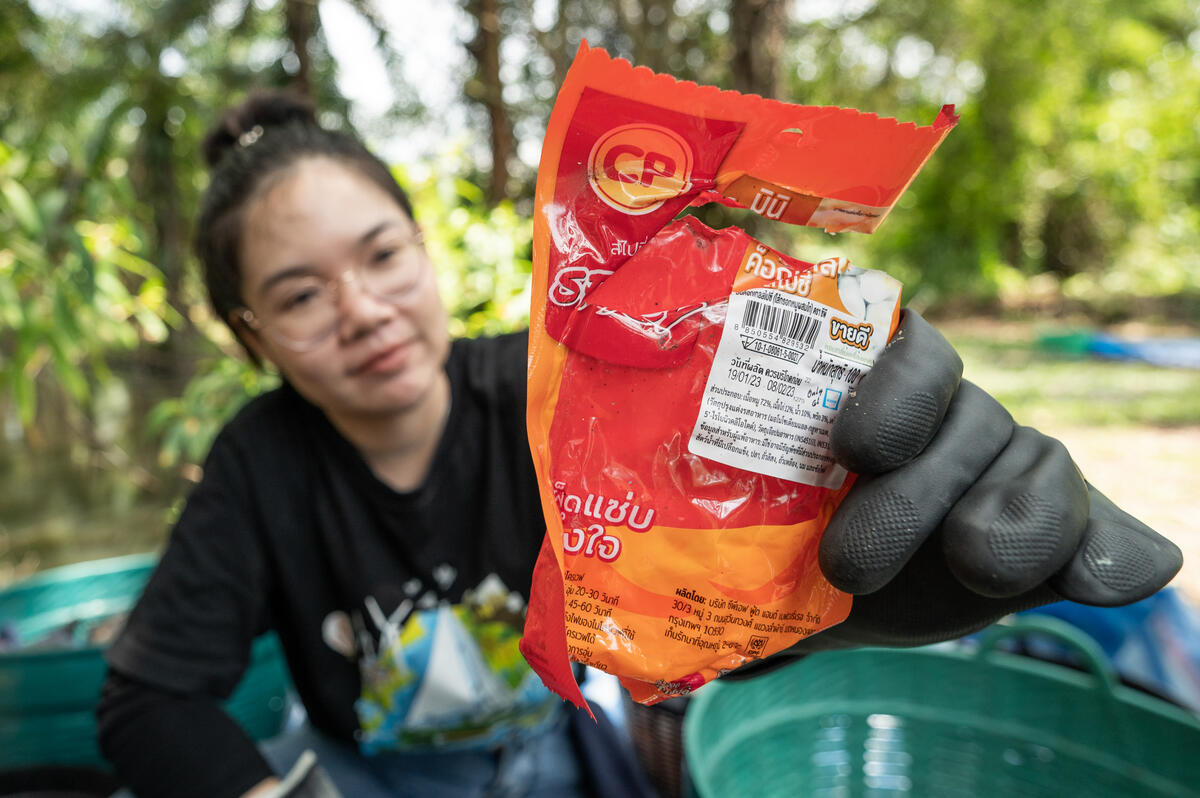Quezon City, Philippines — Environmental groups today called on consumer goods companies to stop peddling false solutions to cover up continuous reliance on single-use plastic, and instead shift to business practices that enable reuse and refill methods. The groups cited data from a new Greenpeace report that exposes how multinational firms refuse to end single-use packaging and compound the problem by embracing false solutions, which include switching to paper or bioplastics and mainstreaming chemical recycling.
The report, titled Throwing Away the Future: How Companies Still Have It Wrong on Plastic Pollution “Solutions” [1] shows how multinational companies, such as Nestlé, Unilever, PepsiCo, and Procter & Gamble, continue to harm the environment by using paper and crops-based bioplastics, which cause deforestation and threaten food security. Moreover, chemical recycling offers false hopes and lock in demand for plastic packaging.
“Filipinos have stepped up the call to end plastic pollution, but big brands are walking away by substituting single-use plastic for another throw-away material. Instead of immediately ending their risky business systems, they continue, and even increase, manufacturing products wrapped in disposable packaging,” Abigail Aguilar, Greenpeace Southeast Asia Regional Campaign Coordinator, said. “Actors from the grassroots level have started to venture into small businesses that promote reuse and refill. We ask these companies to do the same as they have the means to invest heavily in systems that prioritize reuse.”
Earlier this year, Nestle and Unilever, identified as top sources of plastic pollution in the country [2], both launched waste recovery programs for consumers, as well as announced intentions to make their packaging recyclable and compostable. Nestle and Unilever, however, continue to dodge the call for reuse and refill systems—failing to set plans to phase-out single-use production.[3]
“We are being lulled into complacency by token commitments and solutions that are unproven, expensive, unjust, and comes with high ecological and health costs. The first order of business is to stop investing in the plastic industry,” said Beau Baconguis, Asia Pacific Coordinator for Break Free From Plastic. “Meanwhile, communities are demonstrating that zero-waste and plastic-free systems that are simple, affordable, easily implementable, just, and beneficial to ecology and health do exist. Industry and government can draw inspiration from these zero waste communities for systems that work and start implementing them.”
The groups warned consumers and regulators against greenwashing by these fast moving consumer goods corporations, which they point out propose only end-of-pipe measures rather than stopping plastic production altogether.[4]
“Of course, these big companies would want us to continue with a throw-away culture since they are profiting so much from it,” said Jove Benosa, zero waste campaigner of EcoWaste Coalition. “That is why our government should not be fooled and instead legislate a total nationwide ban on single-use packaging to force these plastic polluters to set clear and efficient actions for phasing out plastic. The alternatives that they are peddling merely substitute one throw-away material with another. Similarly, LGUs should not be fooled by such false solutions, and that includes waste-to-energy, which further compounds problems by adding the threat to air pollution and health.”
Notes to editors:
[1] Download the report, Throwing Away the Future: How Companies Still Have It Wrong on Plastic Pollution “Solutions” here
[2] In 2018, 855 billion sachets were sold globally with Southeast Asia accounting for almost 50% of the market. With current growth rates, the global sachet market is expected to reach 1.3 trillion by 2027. Early this year, a report released by the Global Alliance for Incinerator Alternatives (GAIA) put the Philippine sachet use at a staggering 164 million daily, which is almost double the use of plastic shopping bags and thin-film bags combined at 48 million and 42 million, respectively.
[3] Unilever PH, employees lead community fight vs plastic pollution ; Nestlé PHL launches 1st residual waste-recovery program in ‘plastic city’
[4] The global production of plastic will continue to increase by 40% in the next decade with plastic packaging having the biggest share across industrial sectors so that by 2050, there will be an estimated 12 billion tons of plastic waste in natural environments.
Media contact:
Angeli Cantillana, Communications Campaigner, Greenpeace Southeast Asia – Philippines, +639954191496, [email protected]



